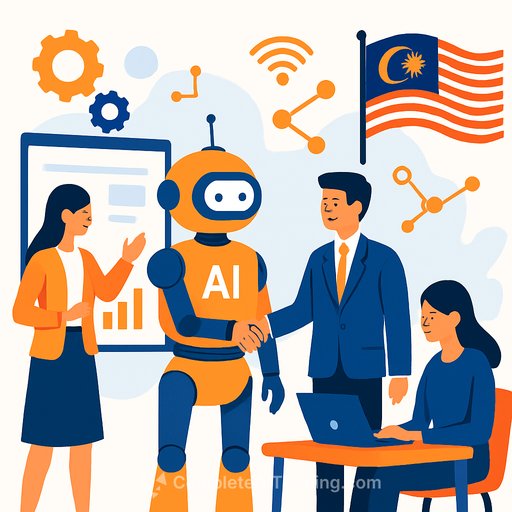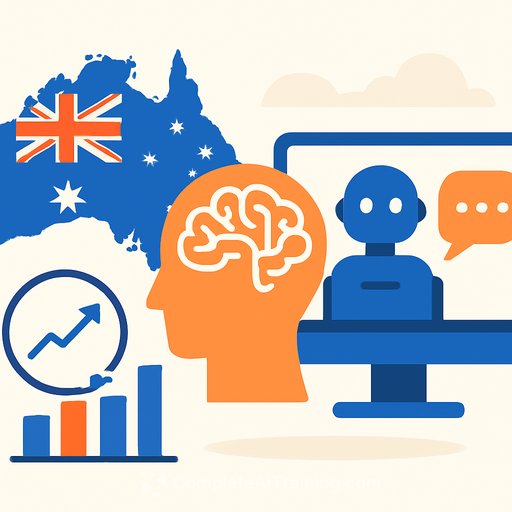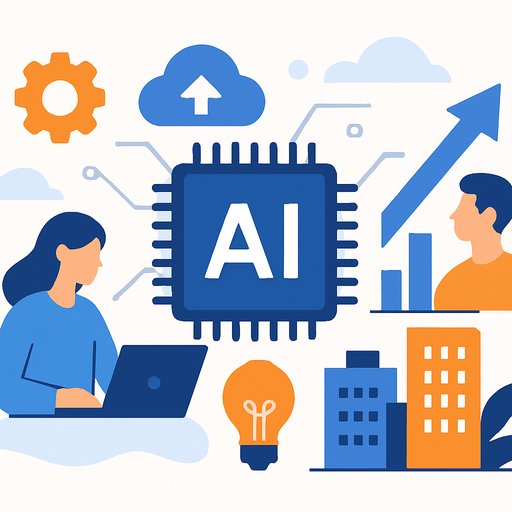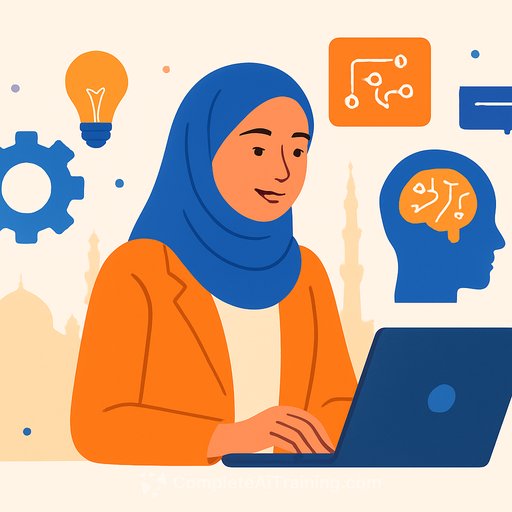AI Adoption and Acceptance in Malaysian Businesses on the Rise
Malaysia is making significant strides in artificial intelligence (AI) adoption, ranking 24th globally in Oxford Insights’ Government AI Readiness Index 2024 with a strong score of 71.4, well over the global average of 47.59. This reflects the government’s active initiatives like the National AI Roadmap 2021-2025 and the Madani Economy Framework, which have set a solid foundation for AI readiness.
Budget 2025 further supports AI growth through incentives for AI research and development, tax breaks for high-tech training and job creation, and easier hiring processes for skilled foreign talent in AI and advanced technologies.
National Coordination and Cloud Infrastructure
The establishment of the National AI Office (NAIO) is a key step in coordinating Malaysia’s AI strategy across sectors. Microsoft Malaysia’s managing director highlights the launch of the Malaysia West cloud region as evidence of the country’s digital maturity and readiness to implement AI solutions at scale.
Growing Business Confidence in AI
According to Microsoft’s 2025 Work Trend Index, 86% of Malaysian business leaders are confident using AI agents to expand workforce capacity. More than half already use AI to fully automate workflows. Adoption spans financial services, manufacturing, and the public sector, driven by a collective goal to create a resilient, inclusive, and innovation-driven economy.
Generative AI (Gen AI) has moved from hype to real-world value. Frontier Firms, defined by hybrid teams of humans and AI agents, report higher productivity and employee satisfaction. In Malaysia, 92% of workers at these firms find their work meaningful, and 58% can handle additional tasks—both metrics surpass regional averages.
From Experimentation to Purposeful Use
Organisations are now asking how Gen AI can improve customer service, boost productivity, and enhance decision-making rather than experimenting without clear goals. This signals a shift to strategic AI deployment.
Economic Impact and ROI of AI
Research points to AI’s significant economic impact. Kearney estimates AI could add nearly US$1 trillion to Southeast Asia’s GDP by 2030, with Malaysia expected to capture US$115 billion. IDC reports Gen AI delivers substantial returns—3.7 times the investment on average, with top leaders seeing an ROI of US$10.30 for every dollar spent. Financial services lead in ROI, followed by media, telecom, retail, energy, manufacturing, healthcare, and education.
Despite strong enthusiasm, a year ago many Malaysian leaders worried about the lack of clear AI strategies, with 83% of AI users bringing their own tools to work, risking data security and missing out on strategic benefits. This year, leadership familiarity with AI agents has jumped to 68%, compared with 39% among employees.
Skilling as a Priority
Microsoft’s AI for Malaysia’s Future (AIForMYFuture) initiative aims to equip 800,000 Malaysians with AI skills by the end of 2025. By May 2025, 400,000 people across government, businesses, startups, educational institutions, and underserved communities have benefited.
Talent remains a challenge. Microsoft works across government, industry, education, and civil society to build a diverse AI talent pipeline. Programs target various groups including government officials, professionals, teachers, students, and marginalized communities, extending beyond urban centers to rural and sunset industry workers.
This effort builds on Microsoft’s previous digital skills training for over 1.53 million Malaysians to enhance economic opportunities in the digital era.
Microsoft’s Commitment and Future Outlook
Microsoft has committed US$2.2 billion in Malaysia, its largest investment in over 30 years, aligning with national goals to become a regional leader in the digital and AI economy. The company plans to continue supporting government digital transformation, empowering businesses, and expanding digital opportunities for all Malaysians.
Agentic AI, capable of autonomous planning and reasoning, is the next step in AI development. Over the next 6 to 12 months, AI agents will become more capable, autonomous, and integrated into daily workflows, solving complex problems and adapting to user needs.
Alongside these advances, organisations will focus more on AI safety, governance, and transparency to deploy AI responsibly at scale.
Building an Inclusive and Equitable AI Ecosystem
Inclusive AI access is vital to ensure the benefits reach everyone in Malaysia. An equitable AI ecosystem can improve public services, agriculture, manufacturing, and open new paths for growth by including diverse voices and building societal resilience.
A joint report by the Malaysia Centre for the Fourth Industrial Revolution and Access Partnership estimates Gen AI could unlock US$113.4 billion in productive capacity, about 28% of Malaysia’s 2022 GDP.
Microsoft’s skilling programs focus not just on technical training but on creating real pathways for meaningful participation in the AI economy. Initiatives reach beyond urban and tech sectors to rural teachers, workers transitioning from declining industries, women re-entering the workforce, and students in technical and vocational education and training (TVET) institutions.
For Customer Support, IT, and Development Professionals
If you work in customer support, IT, or development, understanding and adopting AI tools is essential. AI agents and generative AI can automate routine tasks, enhance decision-making, and improve customer experiences. Developing AI skills will also position you for future roles as AI becomes more integrated into workflows.
To build your AI skillset, consider exploring practical AI courses and certifications that focus on real-world applications and tools. Resources like Complete AI Training's latest AI courses offer relevant learning paths tailored to your job function.
Staying informed and skilled in AI technologies will help you contribute effectively to your organisation’s AI initiatives and keep your career competitive.
Your membership also unlocks:










